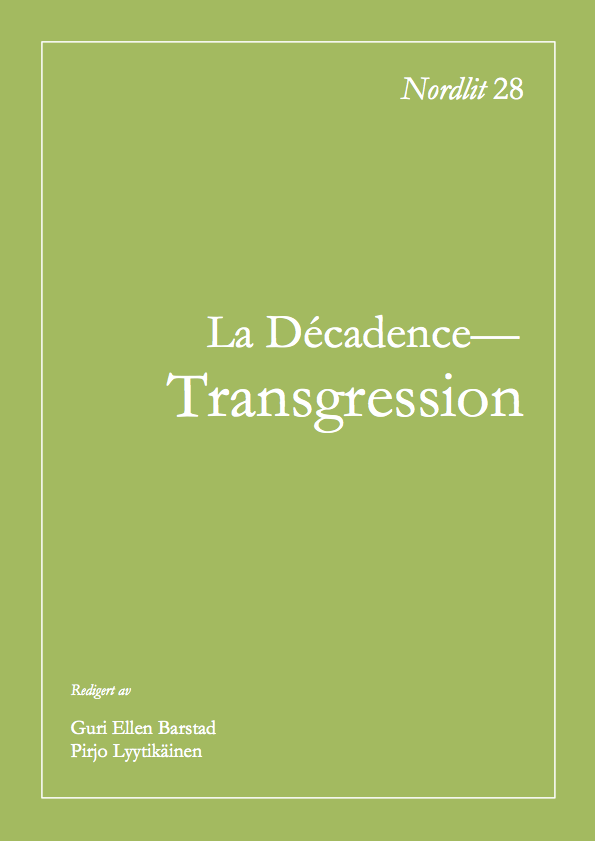L’Afrique à rebours: la décadence dans un corpus de littérature Togolaise
DOI:
https://doi.org/10.7557/13.2046Emneord (Nøkkelord):
Afrique, décadence, exil, fin de siècle, intertextualité, Kossi Efoui, négritude, Sami Tchak, tigritude, troisième génération, utopie décadentisteSammendrag
During the past fifteen years, the West African country of Togo has witnessed the emergence of a new generation of writers - a third generation since independence from colonisation - working in the French language. Born around 1960, these writers have been making their way onto the literary scene since approximately 1990. A certain number of distinctive traits, which have attracted the attention of critics, unequivocally delineate this generation from the two that preceded it. Among these is a new literary aesthetic that resonates with the fin de siècle - with the end of the twentieth century, but also with the end of the second millennium. Moreover, such ends of time cycles, because they exacerbate apprehension about the future and provoke a desire to re-evaluate the past, are propitious to the development of Decadent literatures.
The goal of this contribution is to examine parallels between the nineteenth century Decadence movement and the new literary aesthetic being employed by Togolese writers of the third generation - and to thereby demonstrate that their aesthetic is without question a neo-Decadent one. Not only does it emerge at the end of the century/millennium, a time when humanity is inevitably reflecting on its fate, but it also coincides with the accelerating globalisation of information (the Internet) and of commercial markets, a context worth taking into account in that it represents a symbolic loss of landmarks, and a doing away with traditional frontiers - both themes that have preoccupied Decadents of all times and all places. Using the work of two Togolese writers (Kossi Efoui and Sami Tchak), this article will explore in exactly what ways these writers can be categorized as Decadents, and the different methods of transgression they use to depict their discontent with their society of origin, which, at the end of the twentieth century, is in a situation of political, economic and social decay.









